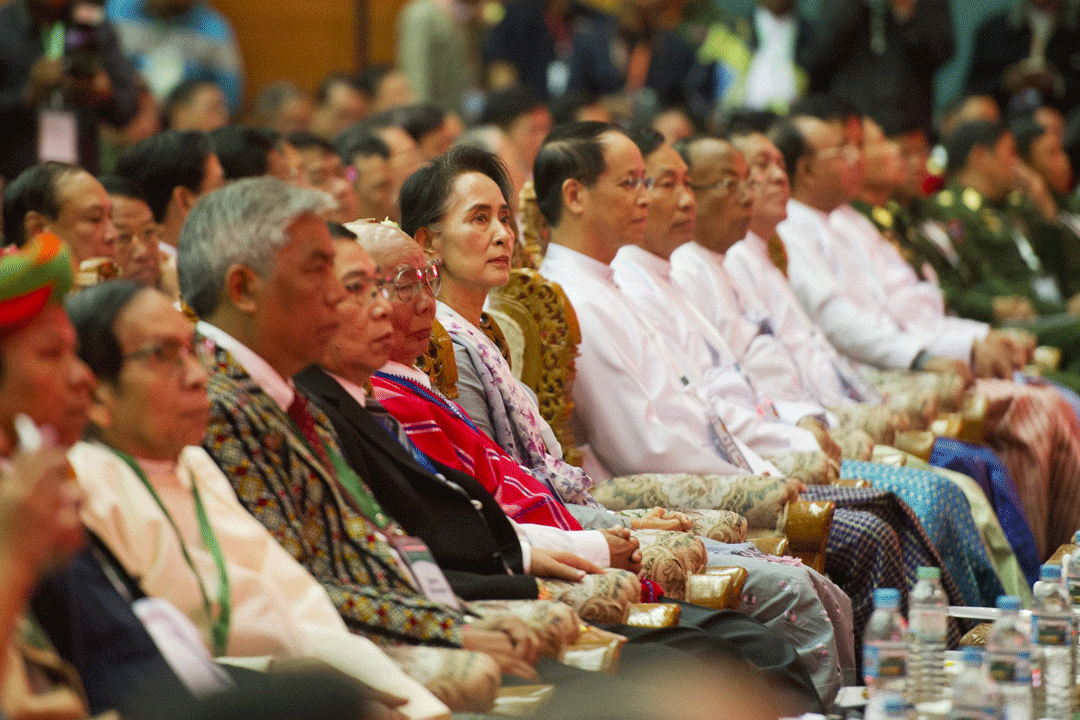Signatories of the Nationwide Ceasefire Agreement (NCA) have added the freedom to draft their own charters to their list of goals for the upcoming Union Peace Conference – 21st Century Panglong, a.k.a. the Panglong Conference.
The next Panglong Conference, a periodic meeting between the Myanmar government and NCA signatories, will be held in April. Signatories are expected to negotiate for new principles of the ceasefire agreement. Recognition of their own charters would be a major step towards a more federalist system that would allow NCA signatories to autonomously govern their territories while cooperating with the Union Government. The last Panglong Conference, held in 2018, brought the number of principles up to 51.
However, policy disputes between the signatories and the Union government led to the cancellation of last year’s conference. Assuming this year’s conference is held as planned, it would come during a period of rising ethnic tensions. This week, government officials met with members of the Karen National Union (KNU), one of Myanmar’s oldest and most powerful ethnic armed groups, a cornerstone member of the NCA, and an ardent supporter of a federal system. The meeting was held to diffuse tensions over a new, army-built highway in the KNU-held township of Hpapun. The KNU claims the highway is designed to allow the mobilization of troops in their territory and that the arm (Tatmadaw) has been spying on them with drones. The Tatmadaw, on the other hand, say the highway is merely to supply established bases and civilian population. They also blame the KNU for the death of a colonel who was killed in late January by a landmine.
Outside the bounds of the NCA, it has been a difficult season for Myanmar’s peace process. Vicious fighting continues in Shan, Kachin, Chin and Rakhine States with no less than seven major armed ethnic groups, leaving tens of thousands of civilians displaced.


